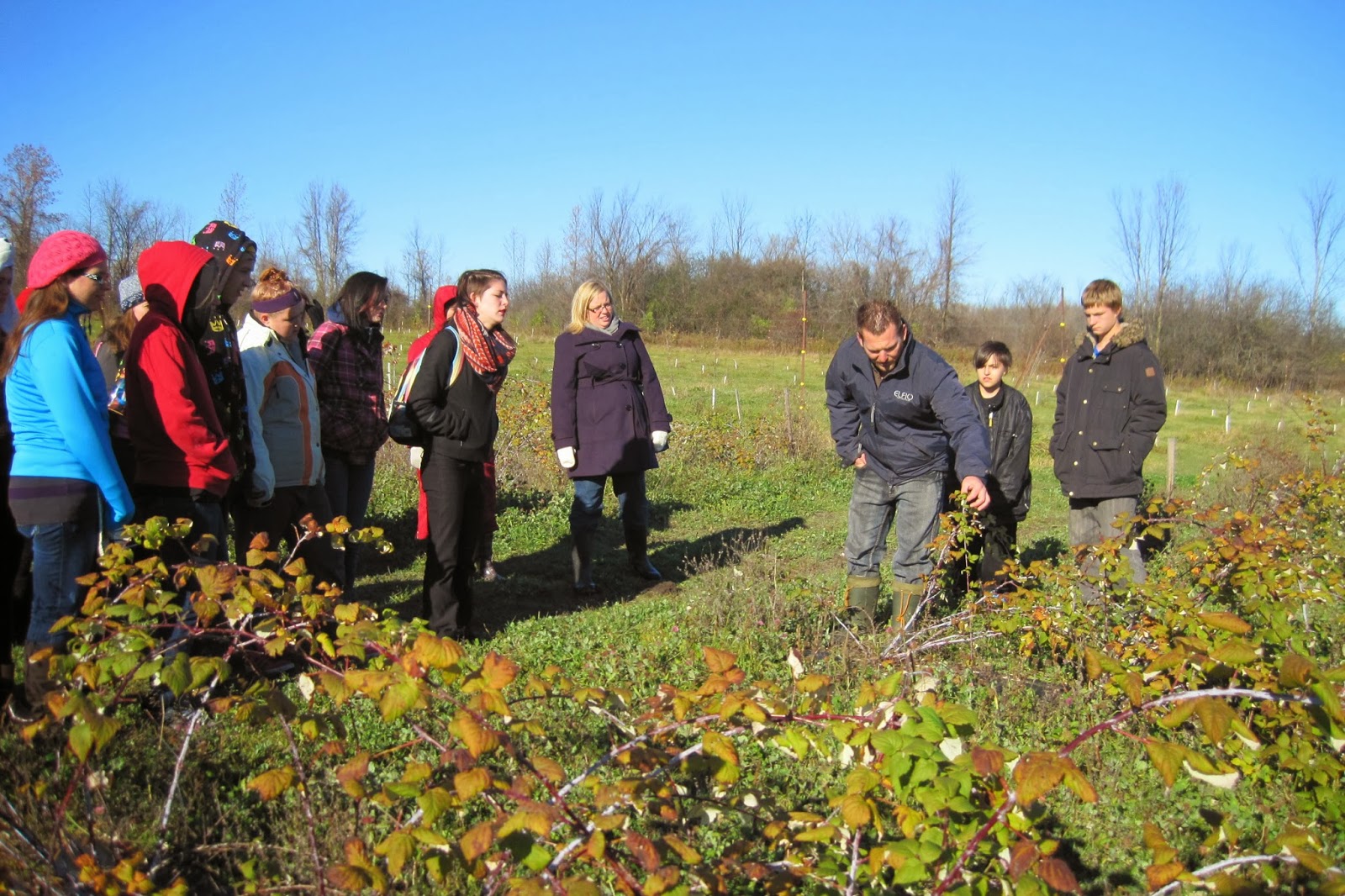We were lucky with the weather on November 6, 2013 when a group of 25 grade three students from Devonshire Public School came for a Growing Up Organic Farmgate Café field trip to Castor River Farm. The students got off the bus and were ready to pepper farmer George Wright with questions.
Castor River Farm is primarily a grain farm, organically raising a diversity of seeds and grains. Most grain farmers (whether organic or conventional) produce on a much larger scale, selling through brokers to a grain elevator to join in a complex supply chain which reduces the return for the farmer. What is unique is that George mills the grains himself and sells directly to the consumer at Farmers Markets!
Just a few steps away from the bus we were introduced to an antique fanner mill. Oats out of the combine are not clean enough to sell. The fanner mill uses agitation, wind and gravity to separate out chaff and weed seeds, small or broken grains, etc. from the nice large oat seeds.
Next we checked out a stationary tandem bicycle which powers a stone mill for grinding flour. In the spring a group of students from Fisher Park enjoyed milling flour. However, Devonshire's grade's were a wee bit too small to reach the pedals, so their teachers and parent volunteers had to get to work instead!
The adults pedalled while the students cheered for enough flour to make brownies: “Gingerbread! Gingerbread!” This is surprisingly hard work, and it takes a long time to get any amount of flour!
Then we got to meet some of the non-human characters on the farm, namely a workhorse, a pony and a pretty Brown Swiss Cow. We got up close and personal with the hens too, going into the henhouse to nab an egg or two! Students were very creative in naming their eggs: Sunny, Eggdar (instead of Edgar), etc. During this time, the students became aware that there was poop everywhere. So they were let loose on a field of fall planted spelt to see what poop they could find. What a perfect entry point for discussing crop diversity, crop rotations, keeping soil covered over winter and mixing livestock with crops!
The field had been planted in September, and the horses, cows and chickens were allowed to graze on the new growth, giving them a little extra pasture in the late fall. In turn, the animals help fertilize the field with their poop. George showed us how wherever there were horse apples and cow pies, the spelt was long and green, compared to everywhere else. This is not from fertilizing....George was showing how the animals are intelligent enough to know not too eat near where they have defecated.
Finally, we visited the pigs and threw them some wild apples – to the pigs’ and the students’ delight. George explained how he carefully chose his breed of pigs, English Large Black pigs, because they are hardy, docile and good rooters. The pigs (about 15 sows and their litters) had been on about 10 acres of pasture all year. Amazingly, there was hardly a single blade of grass left! The pigs had completely cleaned the field, while dropping their manure, and even rooting up a ton of stones for George to pick out. The field is virtually ready for next year’s crop and George has hardly had to touch it! The teachers and parents collected about 30 pounds of rolled oats and freshly milled Red Fife wheat flour. The students will use this to make bread to accompany the soup made from carrots and potatoes the rest of Devonshire’s grade threes were buying during their visit to Roots and Shoots farm at the same time.
Thanks again, George, for being such a good host for these students. I can tell, you’re a child at heart too!



















































